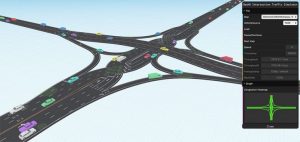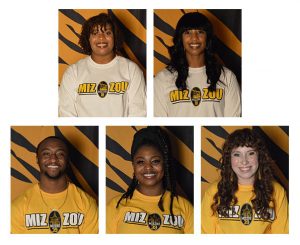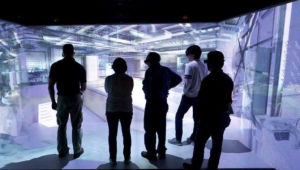
March 17, 2021
Rao Invited to Serve on Environmental Health Sciences Review Committee
Praveen Rao has been invited to serve as a member of the Environmental Health Sciences Review Committee, which serves as an advisory board to the National Institutes of Health (NIH). Members are appointed for a 3-year term.

March 17, 2021
Engineers Explore Algorithms, Materials to Improve AI Vision
Mizzou Engineering researchers are investigating how to engineer materials to improve a machine’s ability to see and understand physical objects.

March 15, 2021
Mizzou Engineering Recognizes Outstanding Faculty, Staff, Students
Mizzou Engineering has recognized faculty, staff and students for outstanding performance and dedication to the College. Winners were surprised today with virtual announcements and personal messages from interim Dean Noah Manring.

March 15, 2021
No More Red Lights? Proposed System for Self-Driving Cars Eliminates Need to Stop
Imagine getting through your evening commute safely and seamlessly without ever having to wait at a red light or stop sign. That’s what one research team at Mizzou Engineering is studying in anticipation of roadways filled with self-driving cars.

March 11, 2021
Partnership with Amrita Kicks off with International Symposium
Mizzou Engineering has formed a partnership with a top-ranked university in India to foster collaboration among researchers and students. The partnership between Mizzou and Amrita Vishwa Vidyapeetham aims to promote cooperation through joint research and publications, international initiatives, training programs and student exchanges.

March 9, 2021
Computer Science Student Takes First at IEEE Competition
Chenxi Zhao, a Mizzou Engineering graduate student, took first place in his category at an IEEE competition held virtually this past weekend. The IEEE St. Louis student presentations competition is under the umbrella of the Institute of Electrical and Electronics Engineers, the largest technical professional organization in the world.

March 8, 2021
Mapping the Cities of the World One Building at a Time from Space
A group of four computer science PhD students in the Computational Imaging and VisAnalysis Lab at Mizzou Engineering took the top spot in the graduate student category at the 24th Conference on Neural and Information Processing Systems SpaceNet 7 competition.

March 8, 2021
Five Mizzou Engineers Among Mizzou 18, Mizzou ’39 Recipients
Five engineers were among the MU students honored last week with Mizzou 18 and Mizzou ’39 Awards.

March 3, 2021
Meet Shubhra Gangopadhyay
Sometimes, before you can think big, you have to think small. After all, you can’t tackle the big problems without interacting with the microscopic molecules, electrons and atoms that make up our world. Meet Shubhra Gangopadhyay, professor, researcher and inventor of teeny-tiny technologies.

Feb. 9, 2021
CAVE to Provide Immersive Virtual Experience
Imagine studying a protein by walking through its three-dimensional structure. Or researching traffic patterns by standing alongside a virtual highway. Or safely exploring the structural integrity of a house while it’s on fire. Mizzou Engineers will soon have the capability to do these things, thanks to a CAVE opening this year in Lafferre Hall.